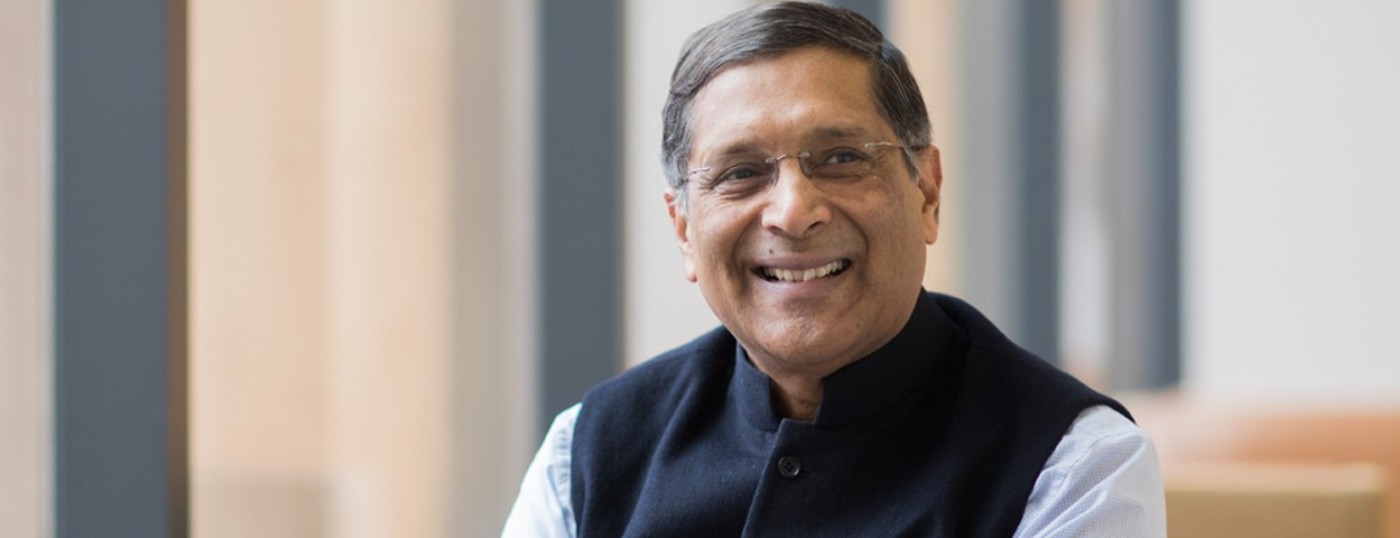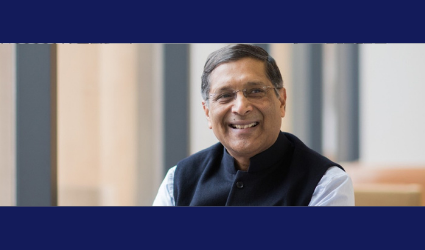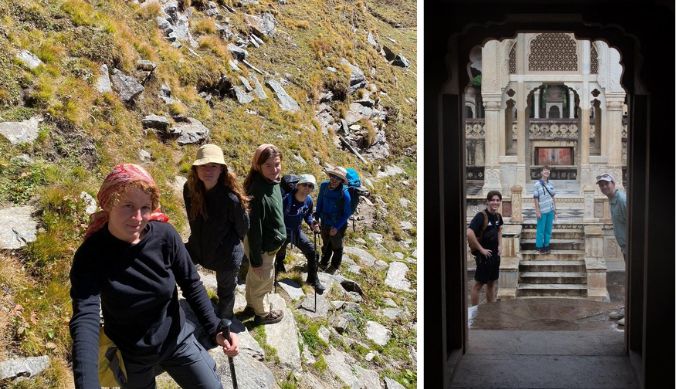Former CEA, Professor Arvind Subramanian opens up about issues related to India and global economic development
In conversation with the former Chief Economic Adviser (CEA) to the Government of India, Arvind Subramanian, Professor of Economics and Director, Ashoka Centre for Economic Policy (ACEP).

Office of PR & Communications
1 March, 2021 | 10 min readFrom the Centre’s recent research and upcoming events, to the Union budget, effect of pandemic on Indian economy and post-COVID recovery and what recent US elections mean for India, Subramanian touched upon many issues related to India and global development.
How is Ashoka Center for Economic Policy set up going? Can you tell us briefly about some of your current/upcoming research work and any exciting new events?
It has been going really great so far. ACEP is devoted to do research and analysis on policy issues related to both India and the other developing countries in the world. We are working on many topics at present. Personally, I have been working with Assistant Professor Shoumitro Chatterjee of the Pennsylvania State University on India’s economic turn, but, at an institutional level, we have a research coming up on the Fifteenth Finance Commission and the fiscal federalism. Another big research that we are focusing on is if we can use big data to improve the measurement of the Indian economy. We are also finding out possibilities of having a survey similar to the Economic Survey of India, for the world economy as a whole.
We have managed to do a lot of research in a short period of time and have a few exciting events coming up like the one with Nobel Laureate Paul Krugman titled Is Labour-Intensive Exporting Still a Feasible Development Strategy?, another events which recently happenied was with French economist Olivier Blanchard titled The New Fiscal Consensus, and many more. At ACEP, research although is our prime focus, but, we want to make the Centre a forum for having a lot of discussions on economic development. However, I think the real test of the Centre is going to be how much of capacity we create so that others can also do a lot of research as well.
How do you see the current macroeconomic situation in India? Are we recovering from the COVID-19 economic shock? What factors will affect the speed of recovery?
Josh Felman and I wrote a piece on where we stand on the Indian economy titled The Economy and Budget: Diagnosis and Suggestions and I think that it has been a devastating pandemic. India’s growth and employment have come down quite a bit, and our fiscal situation has also been affected quite badly. However, there is also a sense of optimism about the recovery in general. The big challenge is going to be once the short-term recovery happens, how India’s medium-term economy will recover because along with the financial system of the country, the migrant labour has been affected as well.
There are approximately 15-17 million people who were employed before the pandemic hit but have no jobs now. How we get those pieces of the economy back together again is going to be the biggest challenge. Therefore, measures to improve the financial system, increase employment, and improve labour-intensive exports are all going to be very important.
How would you assess the recent budget?
I haven’t given proper thought to the budget yet, therefore, don’t want to say too much. But there are things in the budget I liked. The fact that the current government has come completely clean and transparent with fiscal accounts, I think, is a major step forward. We have had these data problems in India and to be serious about them is a good step forward.
Some other things like the decision to announce privatisation of public sector banks is a very bold and courageous move. A lot is going to be depended upon implementation. Also, the fact that so many poor people got affected, and the recovery has also been kind of K-shaped, so while having a growth-oriented budget is important, continuing to provide protection to the poor is equally important and I hope the government will continue to focus on protecting the poor, whether through MGNREGA or cash transfers.
Standard and Poor’s recently predicted that India is likely to be among the fastest-growing emerging markets this year, with a 10% growth in FY 2022. But at the same time, India’s unemployment had a sharp rise of 9.1% in December 2020 and keeps growing. Your comment on this.
Let’s start with growth, remember, the reason for the fastest growth this year is because we were hit the most in the pandemic. Think of it this way. Suppose before the pandemic began, India’s GDP was 100 and then it went down to 90. Now, if growth next year is going to be 11%, then we will be back to almost the same number we were at before the pandemic. The rapid growth this year is taking us back to where we were two years ago. So, we lost two years, and this isn’t something to be too excited about. What is going to happen afterward is critical.
On the employment part, we already know from the depth of it is that employment has improved. It has picked up relatively from January. But the question that arises here is whether we will go back to the employment rate we had before the pandemic hit. This depends on two factors. One, the assurance that people can move around. Although in India, the pandemic seems to be under control, with cases flaring up in some states, there will still not be the same sets of people wanting to move and go back to their old jobs. And two, since we know a lot of this is related to the migrated labour as well, people need to have the confidence that they can start moving again. My sense is that people will only have the real sense to move back, if this growth continues to sustain, and if they feel if they move they will be less vulnerable than they used to be in the past. So, I think, a prevailing sense that the pandemic is under control is very important right now.
What does Joe Biden’s presidency mean for Indian economy?
The India-US bilateral relationship is a defining and important one. I think broadly there is a sense in which India and the US have been coming closer together over a long period of time. There is a basic commonality, whatever you may call it – shared democracy, shared values, and certain political concerns. The rise of China, for example, has been a common concern for everyone. And I think that will continue. But the India-US defence and strategic relationships have been going well for some time. India is buying a lot of American equipment. Also, there is an Indian diaspora in the US that is very influential and they are going to play a very important role.
But that does not mean that the bilateral relationship will not have bumps along the way, especially on the trade and the economic side, there has been a lot of friction, and there will continue to be friction. There is just no getting away. You know, like India turning inward, and to some extent, the US turning inward as well. We also saw how India recently imposed taxes on high-tech companies. All the countries in the world are trying to figure out how they are going to tax big companies and what the Indian government has done is not unreasonable at all. But it is going to create tension with the US.
And also, the new element is that the US Democratic Party has always been more pro-human rights, pro-democratic values. Although the US has its own domestic problems, the change of regime is going to weigh in a factor in these issues. And that could be some mild source of tension if the world believes that India is also becoming less open to freedom of expression and so on. But these frictions are such that both sides should be able to manage.
According to Britain Meets India report, developed by CII and Grant Thornton Bharat, India-UK bilateral relations will touch a new high in the post-COVID world, as India is likely to be a priority country for the UK, especially in the wake of Brexit. Your comment.
With the UK, we could have an improvement based on trade, because one has to remember that the UK is now unencumbered by the European Union rules, so they can do their own trade deals and so on. And, they are looking to do this with India and in that sense, this relationship is going to be strengthened over time.
Arvind Subramanian in conversation with Shreya Chatterjee














